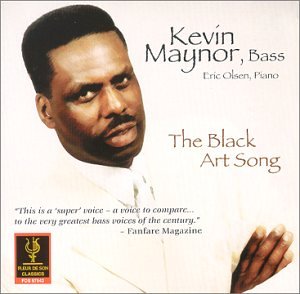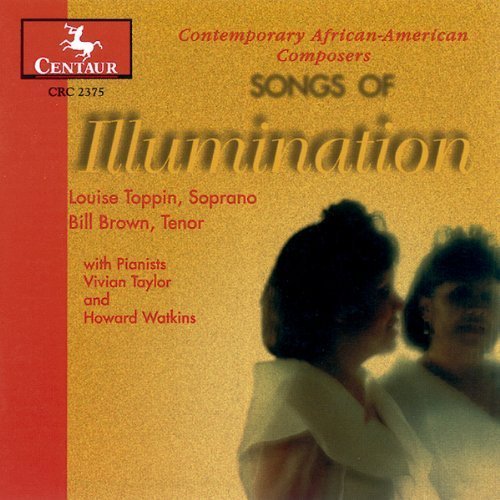Listen
Track:
About
Born in Georgia, Howard Swanson’s family moved to Cleveland when he was nine, and Swanson studied at the Cleveland Institute of Music. After studying with Nadia Boulanger in 1938, Swanson spent two intensive periods studying and traveling in New York. He finally settled in New York City in 1966. There he met Langston Hughes, and the two became close friends. Swanson set much of Hughes’ poetry and was able to often consult with the poet himself while doing so.
Thanks to Marian Anderson’s 1949 performance of Howard Swanson’s song “The Negro Speaks of Rivers,” Swanson’s music began to gain national attention. He won several awards, including the Guggenheim Fellowship and a National Academy of Arts and Letters grant.
Swanson’s neo-classical compositional method is appealing to a wide range of listeners, with graceful melodies and a touch of jazz and idioms of black American folk music.
–Christie Finn
Source: Eileen Southern’s article in The New Grove Dictionary of Music and Musicians
Related Information
Songs
Recordings
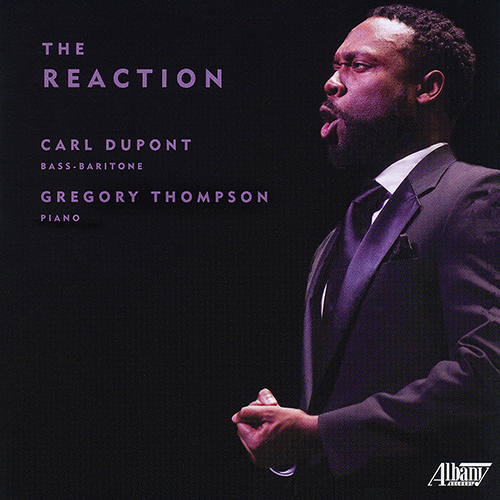
The Reaction
(Marques L. A. Garrett, Jacqueline Hairston, Eugene Hancock, Lena J. McLin, Robert Owens, Carlos Simon, Howard Swanson and George Walker)
2018
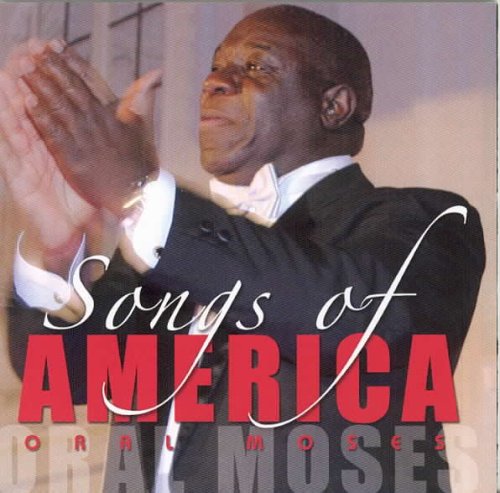
Songs of America: Oral Moses
(Uzee Brown, Jr., Henry T. Burleigh, Aaron Copland, Florence Price and Howard Swanson)
2007
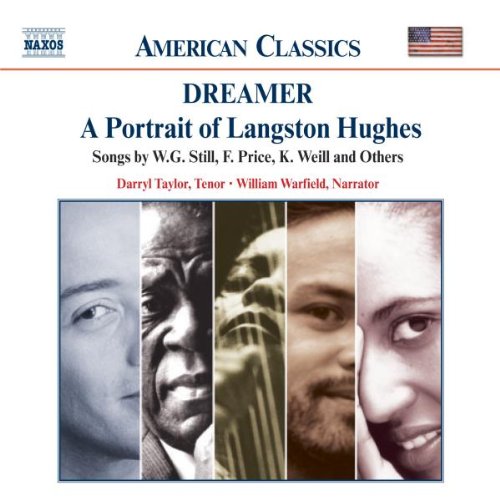
Dreamer - A Portrait of Langston Hughes
(Margaret Bonds, William Grant Still, Kurt Weill, Henry T. Burleigh, Robert Owens, John Musto, Ricky Ian Gordon, Howard Swanson, Jean Berger, Erik Santos and Florence Price)
2001
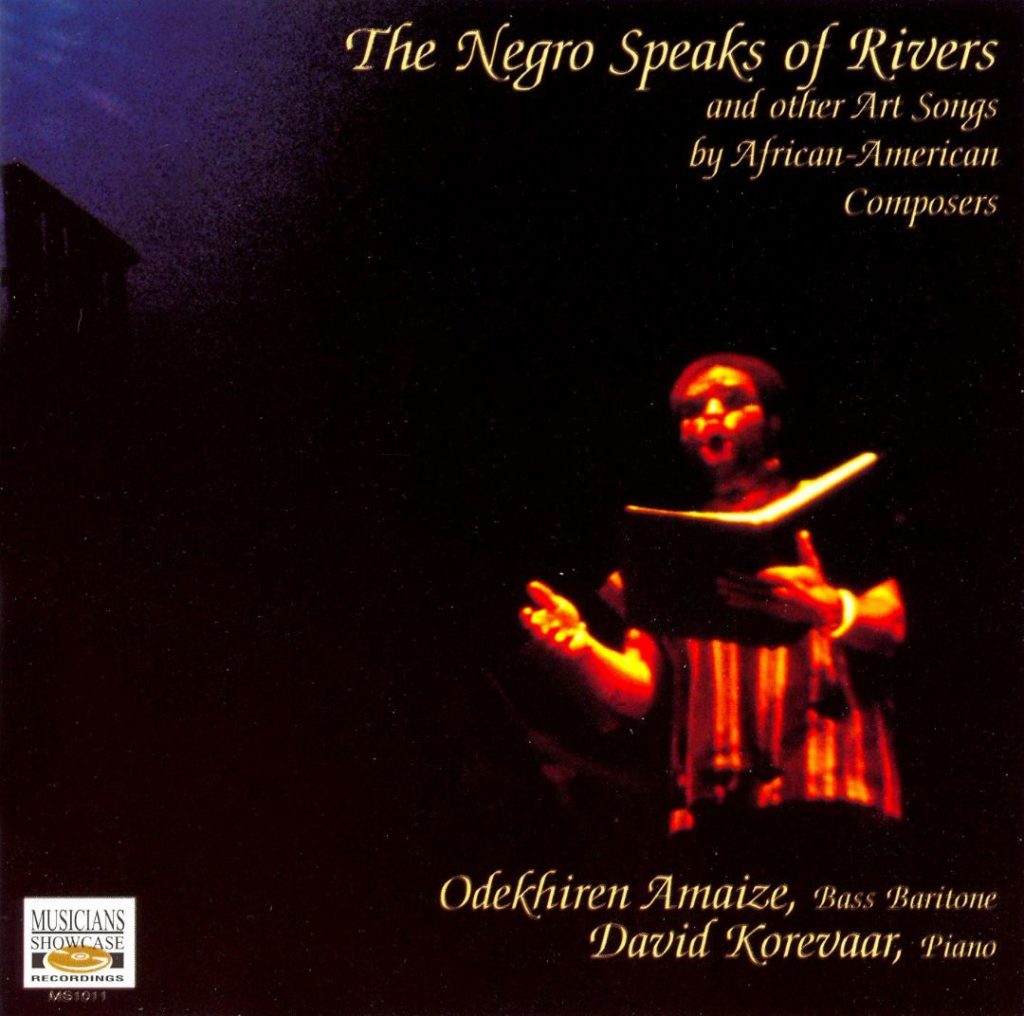
The Negro Speaks of Rivers
(H. Leslie Adams, Margaret Bonds, Charles Samuel Brown, Undine Smith Moore, Robert Owens, George Walker, Howard Swanson, Florence Price, Henry Clay Work and Cecil Cohen)
1998
Sheet Music
An Anthology of African and African Diaspora Songs - 60 Songs
Composer(s): H. Leslie Adams, David N. Baker, Margaret Bonds, Charles Brown, H. T. Burleigh, Valerie Capers, Samuel Coleridge-Taylor, Arthur Cunningham, Harriette Davison Watkins, William Dawson, Mark Fax, Bruce Forsythe, Antônio Carlos Gomes, Adolphus Hailstork, Jacqueline Hairston, Maud Cuney Hare, Jeraldine Herbison, Jonathan Holland, Sylvia Hollifield, Langston Hughes, J. Rosamond Johnson, Thomas Kerr, Lena McLin, Undine Smith Moore, Andre Myers, Camille Nickerson, Fred Onovwerosuoke, Eurydice Osterman, Robert Owens, Coleridge-Taylor Perkinson, Zenobia Powell Perry, Rosephanye Powell, Florence Price, Dave Ragland, Nadine Shanti, Carlos Simon, Hale Smith, Irene Britton Smith, Brandon Spencer, Hilbert Stewart, Howard Swanson, George Walker, Aurelia Young
Song(s): Amazing Grace (H. Leslie Adams)
Christmas Lullaby (H. Leslie Adams)
Sence You Went Away (H. Leslie Adams)
The Heart of a Woman (H. Leslie Adams)
The Alarm Clock (David N. Baker)
The Negro Speaks of Rivers (Margaret Bonds)
Caring (Charles Brown)
Desire (Charles Brown)
Your Eyes So Deep (H. T. Burleigh)
Your Lips Are Wine (H. T. Burleigh)
Autumn (Valerie Capers)
Elëanore (Samuel Coleridge-Taylor)
The Willow Song (Samuel Coleridge-Taylor)
Minakesh (Arthur Cunningham)
Stars (Harriette Davison Watkins)
Out in the Fields (William Dawson)
The Refused (Mark Fax)
With Rue My Heart Is Laden (Bruce Forsythe)
Suspiro d’alma (Antônio Carlos Gomes)
If I Can Stop One Heart from Breaking (Adolphus Hailstork)
Longing (Adolphus Hailstork)
Loveliest of Trees (Adolphus Hailstork)
Dormi, Jesu (Jacqueline Hairston)
Gardé Piti Mulet Là (Maud Cuney Hare)
I’ll Not Forget (Jeraldine Herbison)
Little Elegy (Jonathan Holland)
In Time of Silver Rain (Sylvia Hollifield)
The Founding Fathers (Langston Hughes)
This is My Land (Langston Hughes)
L’il Gal (J. Rosamond Johnson)
Soliloquy (Thomas Kerr)
Amazing Grace (Lena McLin)
The Year’s at the Spring (Lena McLin)
I Am in Doubt (Undine Smith Moore)
I Want to Die While You Love Me (Undine Smith Moore)
For a Poet (Andre Myers)
Chere, Mo Lemmé Toi (Camille Nickerson)
Gué, Gué, Solingaie (Camille Nickerson)
Mshila (Fred Onovwerosuoke)
Entreaty (I Am the Rose of Sharon) (Eurydice Osterman)
Could I but Ride Indefinite (Robert Owens)
Die Nacht (Robert Owens)
From the Dark Tower (Robert Owens)
The Lynching (Robert Owens)
The Secret (Robert Owens)
Madrigal (Coleridge-Taylor Perkinson)
O Children of Men (Zenobia Powell Perry)
I Want to Die While You Love Me (Rosephanye Powell)
Spring (Florence Price)
The Sum (Florence Price)
Martin Luther King, Jr. (Dave Ragland)
Mangez, Boulez (Eat, Drink, Be Merry) (Nadine Shanti)
Prayer (Carlos Simon)
Troubled Woman (Hale Smith)
Why Fades a Dream? (Irene Britton Smith)
Dream Variations (Brandon Spencer)
Spring Song (Hilbert Stewart)
One Day (Howard Swanson)
I Went to Heaven (George Walker)
Norris Swamp (Aurelia Young)
Voice Type: 36 Songs are for High Voice - Medium to High Voice
24 Songs are for Medium - Medium to Low Voice
Anthology of Art Songs by Black American Composers, Compiled by Willis C. Patterson
Composer(s): H. Leslie Adams, David Baker, Margaret Bonds, Charles Brown, Cecil Cohen, Noel de Costa, Mark Fax, Adolphus C. Hailstork, Eugene Hancock, Thomas Kerr, Jr., Charles Lloyd, Jr., Wendell Logan, Maurice McCall, Dorothy Rudd Moore, Undine Smith Moore, Robert Owens, Coleridge-Taylor Perkinson, Florence Price, Hale Smith, William Grant Still, Howard Swanson, George Walker, Olly Wilson, John Work, Jr.
Song(s): For You There is No Song (H. Leslie Adams)
Early in the Mornin' (David Baker)
A Good Assassination Should Be Quiet (David Baker)
Status Symbol (David Baker)
Three Dream Portraits: Minstrel Man; Dream Variations; I, Too (Margaret Bonds)
The Barrier (Charles Brown)
Song Without Words (Charles Brown)
Death of an Old Seaman (Cecil Cohen)
Two Songs for Julie Ju (Noel da Costa)
Cassandra's Lullaby (Mark Fax)
Love (Mark Fax)
A Charm at Parting (Adolphus C. Hailstork)
I Loved You (Adolphus C. Hailstork)
Absalom (Eugene Hancock)
Nunc Dimittis (Eugene Hancock)
Riding to Town (Thomas Kerr, Jr.)
Compensation (Charles Lloyd, Jr.)
If There Be Sorrow (Wendell Logan)
Marrow of My Bone (Wendell Logan)
Chanson Triste (Maurice McCall)
Sweet Sorrow (Maurice McCall)
Weary Blues (Dorothy Rudd Moore)
Love Let the Wind Cry...How I Adore Thee (Undine Moore)
Faithful One (Robert Owens)
Genius Child (Robert Owens)
A Child's Grace (Coleridge-Taylor Perkinson)
Melancholy (Coleridge-Taylor Perkinson)
Night (Florence Price)
Song to the Dark Virgin (Florence Price)
Velvet Shoes (Hale Smith)
Grief (William Grant Still)
A Death Song (Howard Swanson)
I Will Lie Down in Autumn (Howard Swanson)
The Negro Speaks of Rivers (Howard Swanson)
Lament (George Walker)
A Red, Red Rose (George Walker)
Wry Fragments (Olly Wilson)
Dancing in the Sun (John Work, Jr.)
Soliloquy (John Work, Jr.)
Second Anthology of Art Songs by Black American Composers (Out-of-Print)
Composer(s): Leslie Adams, Adolphus Hailstork, John Rosamond Johnson, Hall Johnson, Betty Jackson King, Howard Swanson, John W. Work III
Song(s): "Prayer" (H. Leslie Adams)
"Flying" (H. Leslie Adams)
"Midas, Poor Midas" (H. Leslie Adams)
"Christ at a Wedding" (H. Leslie Adams)
"The Future" (T.J. Anderson)
"I Want to Be Free" (T.J. Anderson)
"People" (T.J. Anderson)
"Life" (T.J. Anderson)
"Hymn to Parnassus"(R. Nathaniel Dett)
"Music I Heard with You" (Roger Dickerson)
"I Dream a World" (Uzee Brown Jr.)
"If He Only Walked in Gardens" (Mark Fax)
"Entreat Me Not" (Mark Fax)
"Slave Song" (Adolphus Hailstork)
"Songs of Love and Justice": "Justice," "Difficulties," "Decisions," "Love" (Adolphus Hailstork)
"Four Love Songs: "My Heart to Thy Heart," "Invitation to Love," "Longing," "Goodnight," "If we must die"(Adolphus Hailstork)
"Three Simple Songs": "In Vain," "The Daffodils," "Christmas Everywhere" (Adolphus Hailstork)
"Lil' gal" (J. Rosamond Johnson)
"Crossing the Bar" (Hall Johnson)
"The Foundling" (Hall Johnson)
"Thou Art My Lute" (Thomas Kerr Jr.)
"In Memoriam" (Thomas Kerr Jr.)
"Soliloquy (Haunted)" (Thomas Kerr Jr.)
"When You Feel a Little Blue" (James Lee III)
"Three Dunbar Poems": "Compensation," "Theology," "Dawn" (Betty Jackson King)
"Hatred" (Robert L. Morris)
"Ubique" (Coleridge-Taylor Perkinson)
"The Faithless Shepherdess" (Coleridge-Taylor Perkinson)
From "Thirteen Jazz Settings": "In Case You Put Me Down," "They All Say You're Lovely," "No, Babe, We Never Swing," "You are Not Quite the Air," "In Your Arms Baby" (Coleridge-Taylor Perkinson)
"One Day" (Howard Swanson)
"Snow Dunes" (Howard Swanson)
"Breathe on Me, Breath of God" (John W. Work, III)


